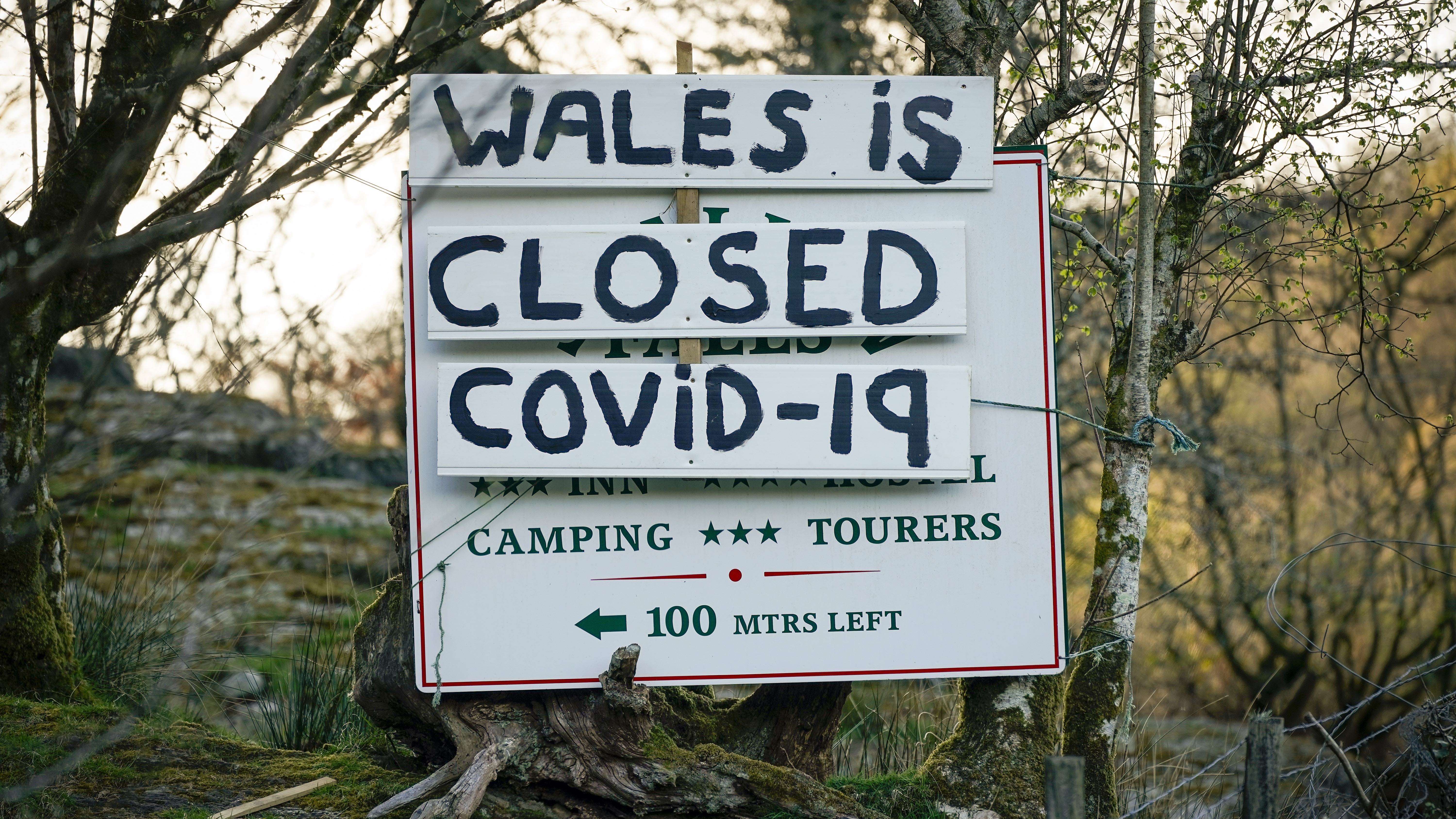Are UK nations parting ways on coronavirus strategy?
Devolved leaders warn Westminster of plans to follow separate policy paths

A free daily email with the biggest news stories of the day – and the best features from TheWeek.com
You are now subscribed
Your newsletter sign-up was successful
The Welsh first minister has suggested that the country may ease coronavirus lockdown measures ahead of the rest of the UK, amid growing frustrations with Westminster.
Mark Drakeford warned that Wales would go its own way if Boris Johnson’s government did not begin working more closely with their Welsh counterparts.
So will Wales lift lockdown early?
The Week
Escape your echo chamber. Get the facts behind the news, plus analysis from multiple perspectives.

Sign up for The Week's Free Newsletters
From our morning news briefing to a weekly Good News Newsletter, get the best of The Week delivered directly to your inbox.
From our morning news briefing to a weekly Good News Newsletter, get the best of The Week delivered directly to your inbox.
In an interview with The Guardian, Drakeford said that the Coronavirus Act 2020 allows devolved nations to enact their own plans - and that it may now be in the best interest of Wales to take a separate path.
“We have the power to do it, definitely. I’d rather we did it together. If we can’t get to that point and we think there are things that are right to do for Wales then we will go ahead and do that, but my ambition is that we do things still together across the United Kingdom,” the Labour politician said.
“The Coronavirus Act does respect devolution. It puts the solution in our own hands, and we have already done things differently in a range of different matters where that’s been right for us.”
In a bid to boost communications between Johnson’s government and the leaders of the devolved nations, Drakeford “has requested Michael Gove, the de facto deputy prime minister, speak with them early this week and then invite them to a Cobra meeting before the weekend”, the newspaper reports.
A free daily email with the biggest news stories of the day – and the best features from TheWeek.com
The Welsh leader added that he had not spoken to Gove for at least ten days.
Wales has already shown willing to go its own way in the coronavirus battle. It was the first UK nation to offer testing to hospital staff and postpone routine operations.
And Wales has also put into law the two-metre physical distancing rule, whereas in England the measure is only included in government advice.
Drakeford’s plan for easing lockdown measures in Wales is to lift the restrictions in stages if there is clear decline in new cases of the coronavirus over the next fortnight.
The phased traffic light system for exiting the lockdown would begin with a “red light” stage that would not look very different to the current situation, he said.
“Drakeford denied he was undermining a UK-wide response, saying his plans could and should contribute to what is being worked on in Westminster,” adds The Guardian.
What about Scotland?
Drakeford has been in regular talks with his Scottish counterpart, Nicola Sturgeon, and both countries have now outlined plans for their own routes to ending lockdown.
By contrast, while Johnson said on Monday that he would provide more details of his lockdown plans in the “coming days”, his government has yet to provide any more information.
Meanwhile, Scotland’s first minister has laid out a blueprint for lifting social distancing restrictions north of the border.
However, Sturgeon has not offered specific dates for the easing to begin, with a strategy plan published on the Scottish government’s website stating that “now is not the right time”.
The Scottish leader has also warned that the measures may be reimposed multiple times with “little notice”.
–––––––––––––––––––––––––––––––For a round-up of the most important stories from around the world - and a concise, refreshing and balanced take on the week’s news agenda - try The Week magazine. Start your trial subscription today –––––––––––––––––––––––––––––––
And Northern Ireland?
Northern Ireland ministers have been discussing “a path back to normality” for weeks.
Speaking in mid-April, First Minister Arlene Foster said that the executive and NI Civil Service were considering how the nation’s lockdown might be eased, once the first wave of the pandemic has passed, as the BBC reported at the time.
“We will return to something resembling normality, school corridors will eventually bustle again again, and restaurants, bars and sports grounds, concert halls and theatres will entertain once more,” said the Democratic Unionist Party (DUP) leader.
But she added: “Change is going to have to be very delicately handled and our response will be a graduated one.
“Given this may be the first wave of this pandemic and no vaccine is as yet readily available, we will be very much guided by scientific advice and the experience of other parts of the globe where they have relaxed their restrictions.”
On Sunday, Northern Ireland’s Health Minister Robin Swann warned that the biggest threat in the fight against Covid-19 was complacency, as five more deaths were reported by his department.
Echoing similar messages from the Westminster government, Swann said that that talking about an end to lockdown and setting out any timetable could see a reduction in compliance.
“It will encourage a greater sense of ease and complacency if people think, ‘well, if it’ll be all right in two weeks so it'll be alright today’,” he told the BBC.
“We don’t have a medical cure for cabin fever but we are asking people for goodwill and determination over the next few weeks to help save lives and to help our health service.”